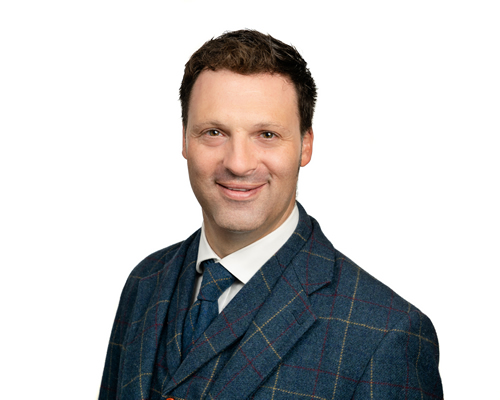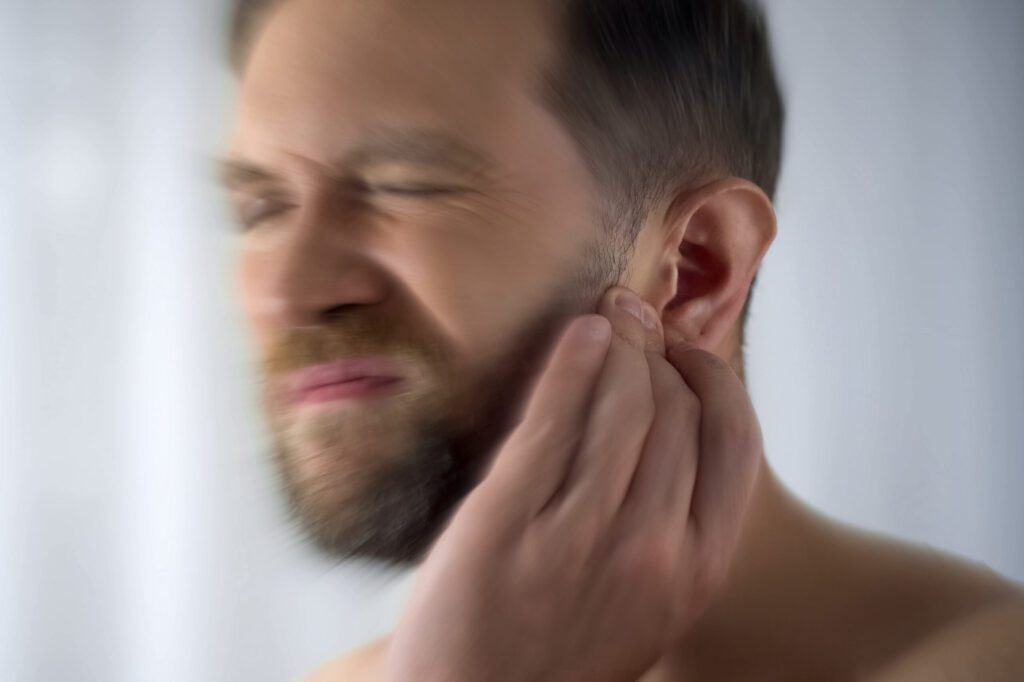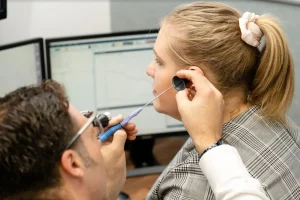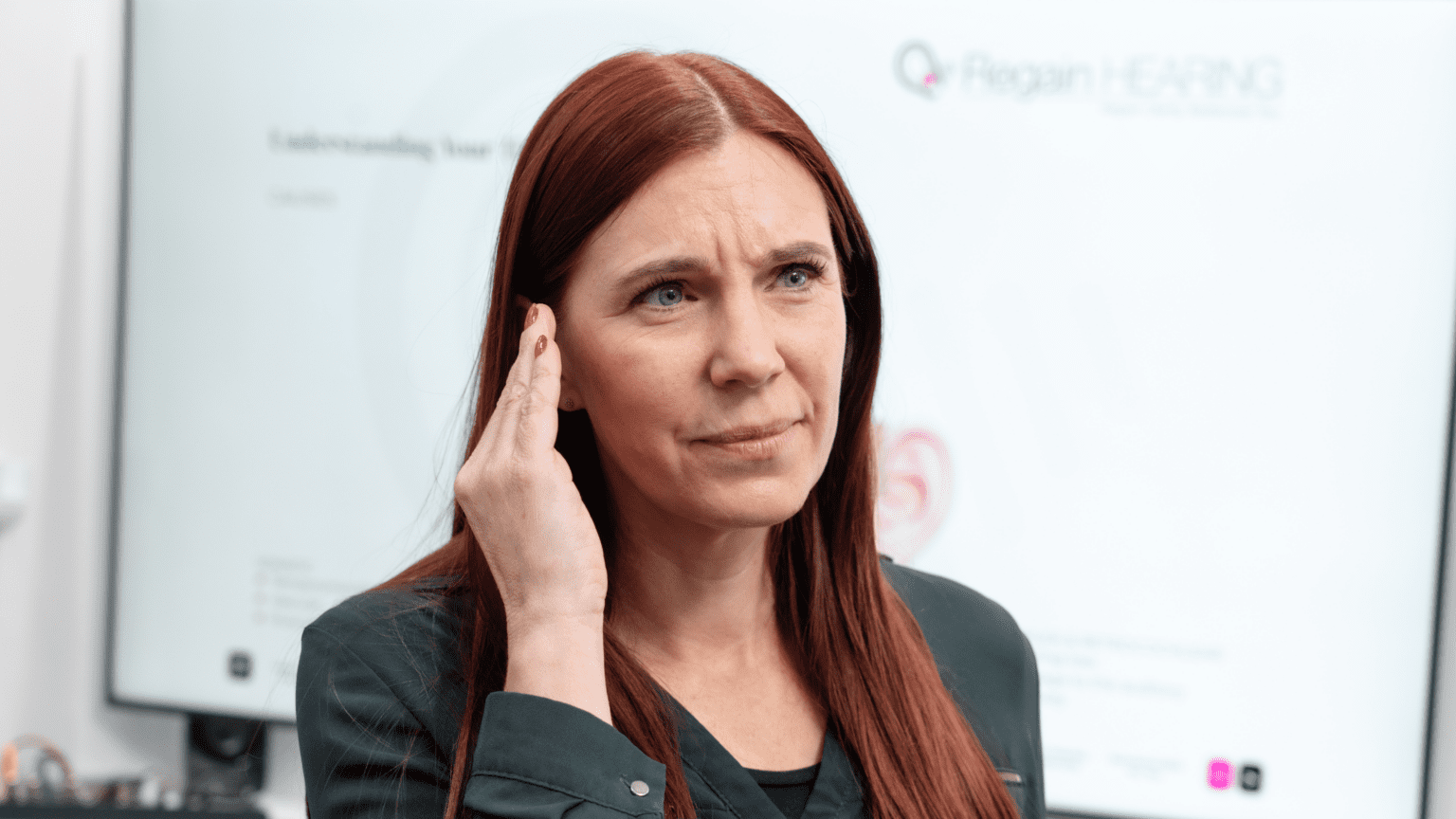Tinnitus is often described as a low or high-pitch ringing, hissing, roaring, whooshing, buzzing or similar noise in one or both ears. It has no external source, and only the sufferer can hear it. Part of the reason tinnitus is so pervasive is that there isn’t any one cure, and a lot depends on any contributing factors that have caused or exacerbated your tinnitus.
Tinnitus UK, formerly the British Tinnitus Association [1], estimates that 1 in 8 (13.2%) people in the UK live with the condition. While for some, these sounds come and go, for others, they’re a constant annoyance that makes work, sleep, and day-to-day living impossible. So how do you get rid of tinnitus? Is there a cure?
Key Takeaways:
- Tinnitus is a hearing condition linked to multiple potential causes, health conditions, and lifestyle factors, meaning there isn’t one cure or medication that can resolve the issue for all sufferers.
- A full hearing test is highly recommended if you have tinnitus since underlying causes, such as infections and ear wax blockages, can be quickly and effectively resolved.
- There are conventional treatments and therapies focus on masking the noises originating from your inner ear rather than getting rid of tinnitus. This can include white noise therapy.
- Regain Hearing’s new cutting-edge bespoke tinnitus treatment therapy offers a new route to relief, achieving positive outcomes and reductions in tinnitus in just one session.
So, how do you get rid of tinnitus? Unfortunately, as it isn’t a disease but an issue connected to the auditory nerve that connects the ear to the brain, there isn’t a cure. The key is to uncover why you are experiencing tinnitus rather than to assume it is something you’ll have to live with.
There are also several treatments available that can help reduce these debilitating noises. Read on as we discuss the most common methods for silencing the sounds in your head, allowing you to enjoy a life free from the ringing in your ears.
How to get rid of tinnitus
-
Use Sound-Cancelling Devices
Sound-cancelling or masking devices typically come in the form of a machine that plays ambient music and nature sounds. These may include crashing waves, falling rain, or hearing aids that sit in the ear and produce continuous, low-frequency white noise to suppress tinnitus symptoms.
You might also want to consider creating your own soothing sounds by turning on a fan, dehumidifier or air conditioning unit at night to help you sleep.
Plus, as most tinnitus is caused by hearing loss, it’s extremely important you prevent your symptoms from worsening by wearing appropriate ear defenders or plugs, especially if you work as a musician or in an industry that uses loud tools.
We’ve spoken before about the use of protective hearing devices, and it’s important to reiterate that some tinnitus sufferers find that basic disposable earplugs increase the distraction caused by tinnitus because they block out all external sounds, amplifying those noises coming from inside the ear.
Regain Hearing recommends you book a consultation with one of our talented audiologists. We can examine your ears to advise if there is any issue, such as ear wax build-up, that we need to address or suggest hearing protective devices, tailored hearing aids, or properly configured high-fidelity earplugs that may help.
-
Try Ear Wax Removal
We noted that ear wax may be a factor in tinnitus. Wax is an essential and natural secretion that helps protect our ears from dirt, dust, bacteria and infections. However, a build-up in your ear canal can sometimes cause tinnitus due to the pressure from the blockage stimulating your nerve cells, along with many other complaints, including dizziness, disorientation and a partial loss of hearing.
If sounds are becoming muffled or you feel like there’s a fullness inside your ear, ditch the cotton buds, as these can push wax further down the canal. Contact a qualified audiologist experienced in ear wax syringing and microsuction who can remove the blockage without causing any damage.
Our preferred ear wax removal technique, microsuction, is much faster, more comfortable, and hygienic than traditional ear syringing. It also provides immediate relief for many people.
Some clients who assume they are suffering from tinnitus or have been incorrectly diagnosed find that blockages and impacted earwax are directly responsible for muffled or clicking noises in their ears, so it is well worth checking your ears are clean and healthy.
-
See a Professional Audiologist
There’s no need to suffer quietly — instead, reach out to those who can help. Professional audiologists provide scientifically backed solutions to help reduce the effects of tinnitus, and they also offer support.
At Regain Hearing, we administer some of the most advanced tinnitus treatments in the UK. We start by conducting a comprehensive consultation and grading the severity of your condition based on a globally recognised scoring system, the Tinnitus Handicap Inventory (THI). [2] After evaluating your symptoms, we then implement a treatment plan explicitly tailored to you and your specific needs.
It’s also important to note that as tinnitus can cause high levels of emotional stress, those suffering from particularly traumatising cases of the condition might also benefit from behavioural therapy, especially if they’re feeling depressed, anxious or have insomnia.
Scientific studies have confirmed that otologic symptoms – those linked with the middle ear – are commonly related to ongoing stress and anxiety and can either initiate the first symptoms of tinnitus or make them worse.[3]
The counselling options most frequently prescribed by doctors are Tinnitus Retraining Therapy (TRT) and Cognitive Behavioural Therapy (CBT), and both teach coping techniques to stop these persistent sounds from having such a significant impact on your life.
Identifying the Exact Symptoms of Your Tinnitus
Our approach begins with a comprehensive assessment of your ears, looking to verify the frequency, pitch, and volume of tinnitus sounds, any indications of infection, irritation, or wax blockages in your ears, and signs of damage or injury to your ears that are contributing to the problem.
Why do we need to know what tinnitus sounds like to you? As we’ve discussed, tinnitus can be caused by countless factors, including exposure to loud noises, reactions to medications, anxiety and stress, ear infections, and variations in the bone growth in the middle ear.
Evaluating the tinnitus sound can often help us identify a potential cause and recommend further tests or checks that might solve your tinnitus completely. We’ll therefore ask if your tinnitus sounds like:
- Clicking – likely to be caused by muscle contractions within your ear.
- Low-level ringing – often caused by blockages in the ear canal.
- High-pitched ringing – usually associated with loud or prolonged noise exposure, medications or hearing loss.
- Humming or pulsing – can be connected to vascular conditions like high blood pressure.
While this isn’t a definitive list of why you are experiencing tinnitus, it helps demonstrate the importance of a complete test, ensuring your audiologist understands how you are experiencing tinnitus to decide on the best next steps.
Other Tinnitus Guides:
- Is tinnitus a disability?
- Can Tinnitus be cured?
- Is there a test for tinnitus?
- Do hearing aids help tinnitus?
- Does tinnitus go away on it’s own?
How to Treat Medically Related Tinnitus
If we discover a likely cause for your tinnitus that isn’t related to your hearing, ear health, or hearing loss, we may recommend that you either make an appointment with your GP or a practitioner or refer you to the relevant healthcare service or team.
That could be because it seems that your tinnitus is connected to a medication you may be taking. In that case, switching to an alternative or trying a different prescription could be the answer you are looking for.
Other causes might be connected to vascular conditions, as we’ve shown, which is more often the case if you have high blood pressure. It may surprise you to know that hearing issues and blood pressure can have close correlations, although this is something that is often missed!
Again, treating high blood pressure can soothe tinnitus quickly, while complementary therapies like ear wax removal can assist in a speedy and full recovery.
Most people with tinnitus do not have any underlying medical condition. Still, if we identify a cause that requires this type of attention, we’ll be sure to let you know and provide full details of the hearing tests and ear health assessments we’ve performed.
Tinnitus Therapy From Regain Hearing
Regain Hearing appreciates that tinnitus can range from mild to severe, from slightly uncomfortable to debilitating, and from a short-term annoyance to a permanent distraction that limits one’s ability to work, drive, enjoy TV, participate in conversations, and even sleep. Over time, tinnitus can become a serious problem, especially if you have disturbed sleep or cannot stop yourself from focusing on the sounds within your ears.
We developed our leading tinnitus therapy based on years of clinical professional experience and research conducted by our own audiology leads and others in the field of tinnitus analysis.
As a private hearing specialist, we rely on data-backed results and created our treatment protocols using next-generation technology and wholly personalised treatment plans, beginning with the in-depth hearing assessment mentioned.
Lee Fletcher, the Principal Audiologist at Regain Hearing, has been pioneering tinnitus treatments for over a decade to arrive at our latest therapy process, which has already delivered transformative impacts for clients, many of whom had been living with tinnitus for decades.
It is always essential to clarify that each person may have a different type of tinnitus, varied underlying causes or factors, and contrasts in the severity of their tinnitus, whether it impacts one ear or both. Therefore, while we recognise that outcomes can vary between clients and that some people need a series of pain-free, comfortable treatment sessions, the results remain nothing less than ground-breaking.
Lee Fletcher, (RHAD), (BSHAA), Ba(Hons)
You are welcome to contact us at any time to learn more about our tinnitus treatment programme, book a hearing consultation, or speak with one of our audiologists about finding better ways to manage your tinnitus.
References and Sources:
- Tinnitus UK – What Is Tinnitus
- Archives of Otolaryngology: Tinnitus Handicap Inventory (THI)
- National Library of Medicine: Tinnitus: The Sound of Stress?
With clinics located in London, Kent and Essex, our highly qualified team of audiologists are passionate about helping you regain your quality of hearing. Book a consultation today to discover the life-changing effects of our pioneering tinnitus treatments.







 It is always essential to clarify that each person may have a different type of tinnitus, varied underlying causes or factors, and contrasts in the severity of their tinnitus, whether it impacts one ear or both. Therefore, while we recognise that outcomes can vary between clients and that some people need a series of pain-free, comfortable treatment sessions, the results remain nothing less than ground-breaking.
It is always essential to clarify that each person may have a different type of tinnitus, varied underlying causes or factors, and contrasts in the severity of their tinnitus, whether it impacts one ear or both. Therefore, while we recognise that outcomes can vary between clients and that some people need a series of pain-free, comfortable treatment sessions, the results remain nothing less than ground-breaking.


